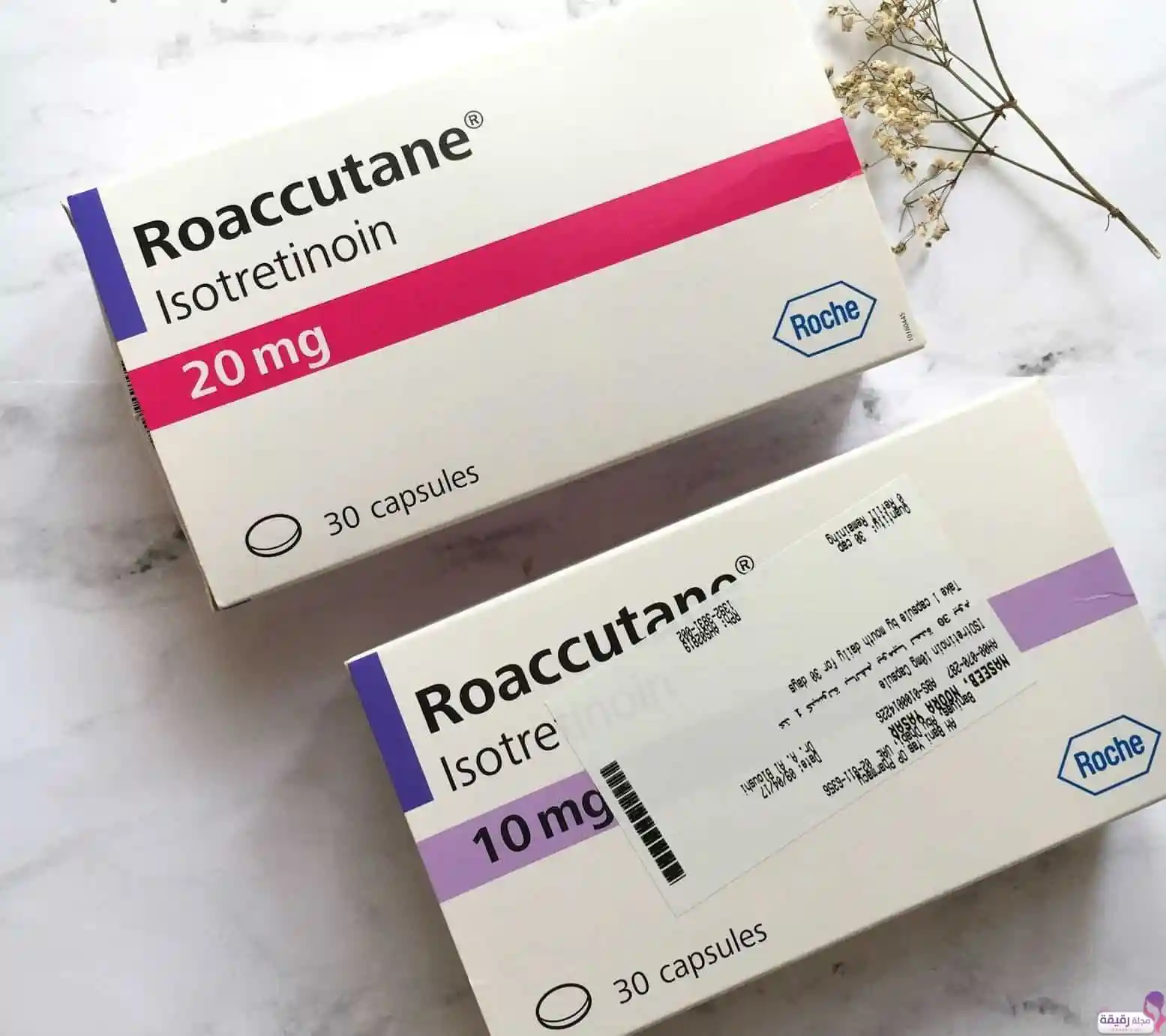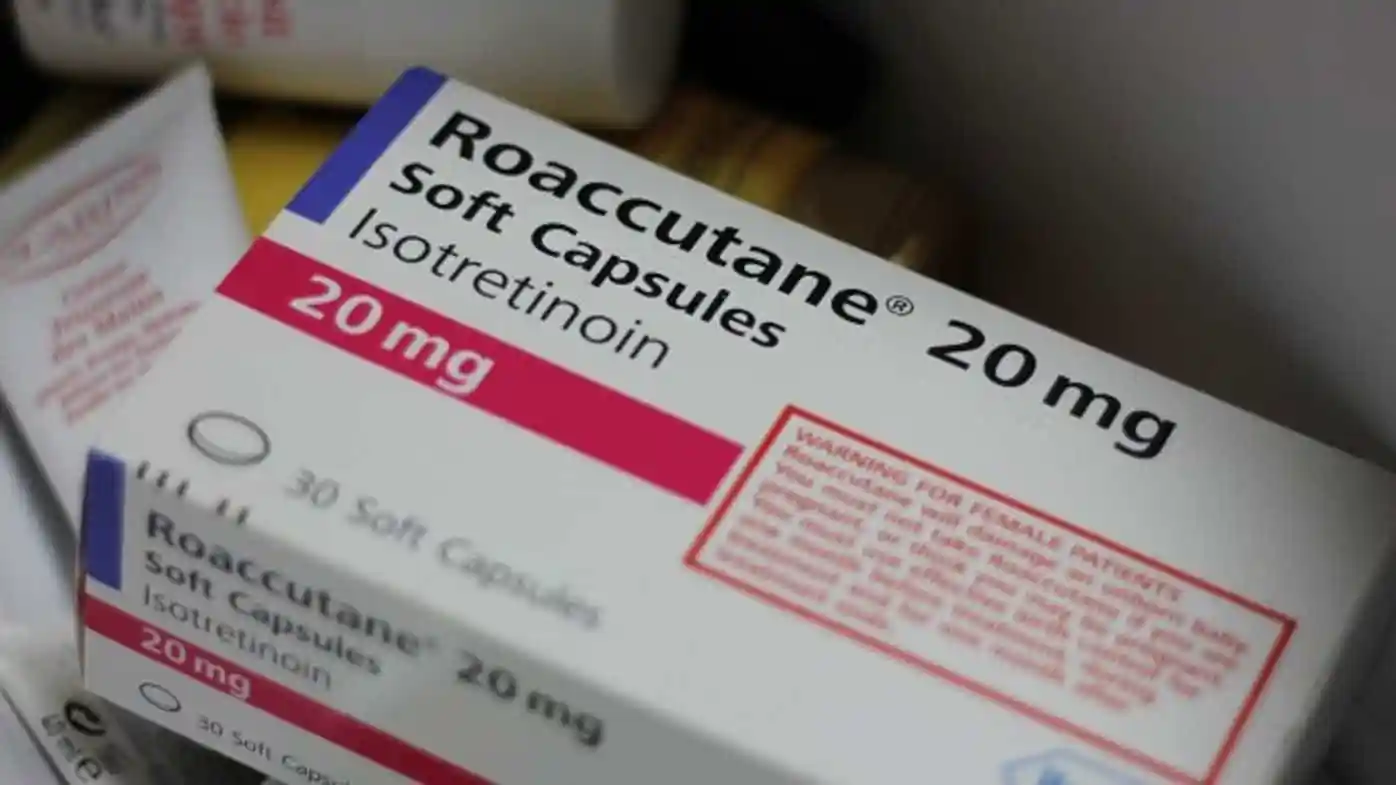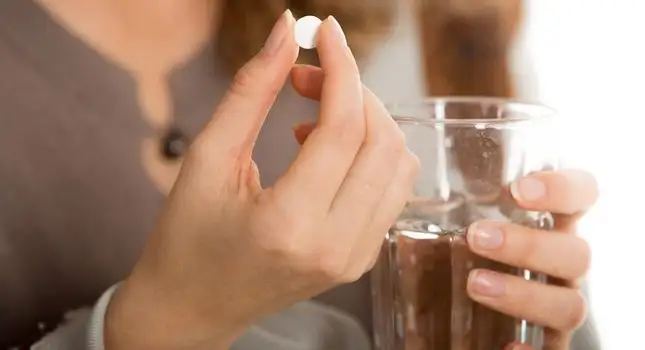When does the body get rid of Roaccutane?
Accutane is used to treat severe acne and recurrent acne that has not responded to other treatments. This medication is highly effective in getting rid of acne, but many patients wonder how long its effect on the body lasts and when the body gets rid of its effects.
The duration of the effect of Roaccutane in the body varies from one person to another, but in general, it takes between several weeks to months for the body to be rid of the effects of the drug.
Roaccutane components are stored in the body, and continue to appear in low concentrations in the body for several weeks after the drug is stopped. Some people may feel an improvement in their acne and a decrease in symptoms after a short period of using Roaccutane, but this does not necessarily mean that the effects of the drug have been completely eliminated.
After Roaccutane treatment has finished, it can take some time for the body to completely eliminate the effects of the drug. It may take about two to three months for the effects of Roaccutane to completely wear off.
It is worth noting that some people may need a repeated course of treatment with Roaccutane to achieve the desired results. This means that the period of continued effect of Roaccutane in the body may extend longer than the normal period.
In general, patients should consult with their doctor and follow precise directions on how to use Roaccutane and prevent any side effects. It is also recommended to inform the doctor of any abnormal changes that occur in the body during and after treatment with Roaccutane.

When does the skin return to normal after Roaccutane?
When Roaccutane is used as a medication to treat acne and other skin problems, people may wonder when they will regain their normal skin after completing the course of treatment. This question is valid and important, because Roaccutane may affect the skin in different ways and it can take time for the body to fully recover.
First and foremost, we must mention that the effects of Roaccutane may vary from person to person. Some may notice a noticeable improvement in their skin condition after a short period of treatment, while others may need longer to recover their skin. In general, you can expect it to take between several weeks and several months for the skin to return to its normal state.
During Roaccutane treatment, the skin is exposed to possible side effects such as dry lips and skin and skin peeling. After treatment ends, the body may need time to replenish skin cells and restore the skin's natural balance. Maintaining a good skin care routine and using appropriate moisturizers can speed up the recovery process.
If you notice any long-term problems after finishing Roaccutane, it is best to consult a specialist. The doctor may decide to adjust treatment or take other measures to address the problem.
It is important to understand that the process of restoring your skin to its natural state after Roaccutane requires patience and time. You may need to adjust your daily skin care and take good care of your skin to help this process.

What happens when you stop Roaccutane?
When you stop using Roaccutane, there are several things that may happen in your body. This is due to the fact that Roaccutane is a medication used to treat severe acne, and it contains an active ingredient called isotretinoin.
At first, your body may feel some temporary changes and side effects when you stop using Roaccutane. You may notice some red spots or dryness in the skin. Your skin may also feel less elastic and a bit dry.
But these temporary effects often go away once you stop using Roaccutane for a period of time. This may take a few weeks or even a few months. After that, the skin returns to its normal state.
It is worth noting that in some cases, some blisters may appear after stopping the use of Roaccutane, but this is usually temporary and goes away over time. If these pills cause you concern, it is best to consult your doctor for advice and guidance.
In general, the effects of quitting Roaccutane are temporary and vary from person to person. It is important that you follow your doctor's instructions and get appropriate medical advice to care for your skin after stopping Roaccutane use.
What should I do after Roaccutane?
Once you've finished using Roaccutane, there are important steps to take to maintain your health and ensure you get the full benefit from your treatment. Here are some important directions for what to do after using Roaccutane:
- Follow your doctor's directions: You should always consult your doctor about steps to take after completing a course of Roaccutane. There may be special aspects of your health condition that require additional attention.
- Maintain a healthy diet: It is important that you follow a healthy diet after Roaccutane. Your skin may be more sensitive and susceptible to inflammation after treatment. Foods rich in vitamins, minerals and healthy fatty acids positively affect skin health and promote skin healing.
- Use sunscreen regularly: You should continue to use sunscreen regularly during and after Roaccutane. Your skin may be sensitive to the sun and sunburn easily. Use broad-spectrum sunscreen and wear clothing that covers your body for extra protection.
- Follow your skin care routine: Continue to follow a proper skin care routine after Roaccutane. Use mild, gentle products to cleanse and moisturize your skin. Your doctor may recommend special products to address any irritation or irritation that may occur after treatment.
- Stay in touch with your doctor: Don't hesitate to contact your doctor if you have any questions or concerns after Roaccutane. You may need a follow-up visit to monitor your skin condition and ensure that Roaccutane has not caused any serious side effects.
- Maintain positive self-care: After Roaccutane, maintain positive self-care inside and out. Treatment can be time and effort consuming, so make sure you give yourself some time to relax and have fun.
Using these directions, you can take proper care of yourself after Roaccutane and maximize the benefits of treatment. Remember that every health condition is different, so you should consult your personal physician for specific guidance based on your circumstances.
Is it normal for pimples to appear after Roaccutane?
After using Roaccutane to treat acne, many may wonder why pimples appear after or even during treatment. In fact, the answer to this question depends on many factors.
We must understand that Roaccutane is a powerful drug that treats severe acne and is usually used in difficult cases. The drug may reduce existing acne and prevent the appearance of new acne, but this does not necessarily mean that it will completely prevent the appearance of acne after treatment.
After you stop using Roaccutane, some new pimples may initially appear. It may take a few months before the skin condition stabilizes and the pimples disappear completely. Do not worry if some pimples appear at this stage, this may be normal and usually fades with time.
Also, pimples can appear after Roaccutane if proper diet and skin care are not followed. It is important to keep the skin clean and use appropriate cleansers to keep the skin clean and free of impurities.
You have to be patient and give your body time to adapt to the effects of Roaccutane. If the problem persists and worsens, it is best to consult a doctor for additional advice and possibly an adjustment in treatment.
Does skin quality change after Roaccutane?
Roaccutane is a powerful medication used to treat severe acne and other skin conditions. The medication contains a chemical called isotretinoin, which cleanses the skin and reduces sebum secretions.
When you use Roaccutane for a long time, you may notice a change in the quality of your skin. Although this change varies from person to person, there are some common effects that can occur.
After using Roaccutane, your skin can become drier and more sensitive. Peeling, cracking, and itching of the skin can occur. The skin may also become more sensitive to sunlight and may sunburn more quickly.
However, once Roaccutane is over, skin quality usually improves dramatically. The skin returns to being smoother and more supple, with less dryness and irritation. This process may take some time, but the positive results are worth the wait.
If you are concerned about changes in the quality of your skin after Roaccutane, it is best to consult your doctor. Your doctor may direct you to a special care plan or recommend skin care products that help treat dryness and itching.
Does Roaccutane unify skin tone?
First of all, we must understand that Roaccutane is a medication that is widely used to treat severe acne and moderate to severe cases of psoriasis. Although it may affect skin tone to some extent, it is not considered a direct skin tone product.
Roaccutane works by regulating sebum production in the sebaceous glands and reducing skin inflammation. As a result, Roaccutane treatment may reduce the appearance of pimples and inflammatory marks on the skin, making it appear more uniform in color and texture.
However, it should be noted that the effect of Roaccutane on skin tone varies from person to person. Some people may notice an improvement in skin tone after treatment, while others may still experience discoloration after treatment has finished.
In general, if you are looking to improve or even out your skin tone, you may want to consider other types of treatments available that target this problem more effectively.
Therefore, it is best to consult with your doctor for suggestions and advice on how to improve your skin tone and suit your individual needs.
What does Roaccutane do to the face?
If you suffer from annoying skin problems such as severe acne or cystic pimples, your doctor may recommend taking Roaccutane to treat them. Roaccutane is a powerful drug for treating very severe acne and cystic pimples, and is considered a last resort treatment used when other treatments do not respond.
Roaccutane works by reducing the size of the sebaceous glands in the skin, reduces sebum production and improves skin cell regeneration. But it should be noted that Roaccutane may cause some side effects, especially on the face.
People who take Roaccutane may notice severe dry skin and chapped lips. Some people may experience skin irritation, redness and itching, and some people may develop dark spots or changes in skin color. In some rare cases, slight hair loss may occur.
It is important to know that these side effects are temporary and fade after the end of treatment. In addition, Roaccutane effectively improves the condition of the skin after the end of treatment, which ultimately enhances confidence and happiness.
So, if you suffer from severe skin problems and are recommended to take Roaccutane, you should be patient and cooperate with your doctor during the treatment period. There will be temporary side effects, but in the end you will have better skin and greater psychological comfort.
How do I know that Roaccutane has taken effect?
When you start taking Roaccutane, you may have a lot of questions about when you will start to benefit from it and when the side effects will go away. There are some signs that could indicate that Roaccutane is starting to work in your body.
One of the first signs is an improvement in acne and the appearance of a reduction in pimples and blackheads. Roaccutane usually takes a few months to show its effect on the skin, but taking a regular dose over the long term can lead to significant improvement and significantly reduce acne.
In addition, you may also notice that dry skin begins to improve. Your skin may be less oily and healthier. This may be an indication that Roaccutane has begun to affect the sebaceous glands in your body and reduce their excess secretions.
In addition, you may notice an improvement in other symptoms associated with Roaccutane such as itching, inflammation, and redness. Your skin may become calmer and less irritated.
Roaccutane damage
Roaccutane is a medication used to treat severe acne and other skin problems. Despite its effectiveness in treating these problems, it carries some harms that people who use it should be aware of.
One of the most notable harms that Roaccutane can cause is dry skin. Users may notice that their skin becomes dry and irritated, and they may experience peeling and cracking of the skin. Some people may also experience itching and redness of the skin, and may need to use strong moisturizers to relieve these symptoms.
In addition, there may be some other possible side effects of Roaccutane, such as increased sensitivity to sunlight, fetal abnormalities in the event of pregnancy, and its effect on blood lipids. Therefore, users should consult a doctor before using Roaccutane to get comprehensive information about side effects and precautions to be taken.
Overall, it can be said that Roaccutane may be powerful in treating some skin problems, but it comes with a set of disadvantages that may affect people in different ways. Therefore, you should always consult a doctor and get the necessary guidance before using it to limit possible harm.
My experience with Roaccutane
If you suffer from troublesome skin problems such as severe acne or chronic acne, Roaccutane may be the solution for you. Roaccutane is a powerful medication used to treat severe skin problems and provides amazing results.
My experience with Roaccutane was amazing. I started treatment after consulting a doctor and obtaining the appropriate prescription. Since then, I have noticed a significant improvement in the condition of my skin.
During the first weeks of Roaccutane treatment, I noticed immediate clearing up of the pimples and pimples on my face. My skin became smoother and clearer, and the dark spots that were bothering me gradually faded. I also noticed a significant reduction in the production of excess sebum that was causing me problems.
Despite the great benefits you have achieved from using Roaccutane, there are some side effects that must be taken into consideration. Roaccutane may dry out the lips and skin, and may also cause other side effects such as headache and blurred vision. Therefore, you should contact the specialist doctor and monitor the condition carefully during the treatment period.
Overall, I am very happy with the results of my Roaccutane treatment. If you suffer from severe skin problems and are looking for an effective treatment, we advise you to talk to your doctor about the possibility of using Roaccutane and its availability for your condition.


